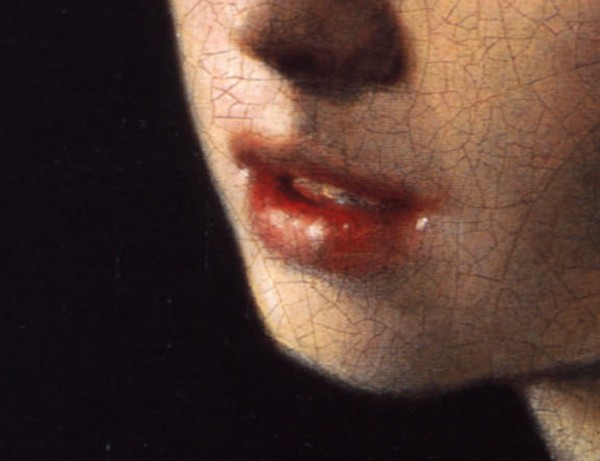
On September 3, 1827, Schubert travelled to Graz invited by the Pachlers, a couple very fond of music. He, Karl, was a driving force behind the operatic life in their town; she, Marie, was an excellent pianist, admired by Beethoven. Artists and intellectuals used to gather in their home and many soirées were held during those three weeks Schubert spent with them. He even had time left to compose between parties, above all dance music which was played before the ink was dry, and also some Lieder with poems suggested by the hostess. In fact, that visit to Graz was still more productive; we should thank Marie Pachler by all those Lieder that Schubert wrote from Leitner's poems (including the gorgeous Des Fischers Liebesglück) when he was back in Vienna.
One lieder he wrote in Graz is the one we're listening this week, Heimliches Lieben [Secret love], a piece frequently treated with scorn because it's a parlour song, the typical song a young girl would sing at an evening. And maybe it's a parlour song, but I wouldn't say it's typical. Because of three reasons: the poem, the accompaniment and the word "typical" itself, an adjective that can't be written next to "Schubert".
The poem Heimliches Lieben was sent to Marie Pachler by Julius Schneller, a friend of hers, a former professor who was in exile. It's a far more explicit love poem than used to be in those years, more similar, for example, to those poems that Strauss would put into music sixty years later. Such an unusual choice fits neatly into the liberal atmosphere of that circle. The vocal line seems to make the poem’s innocent reading, while the piano makes the more sensual, passionate reading; a gifted pianist is needed to play it, maybe it was intended for Marie Pachler. You see, Schubert sometimes wrote parlour songs, usually to please a friend's request, but brought his touch and style to everything he did.
When the poem fell into the composer's hands, the author was unknown and the Lied was published in 1828 under the authorship of Leitner, as were the poems that travelled from Graz to Vienna. Years later, Faust, the Pachlers' son, who was still a child in 1827, clarified whose the poem was: the author was Karoline Louise von Klenke. Her poem wasn't entitled Heimliches Lieben but An Myrtill, and someone had removed this woman's name from the first verse; now we understand why that love was to be kept a secret, talking about lesbian love was highly inconvenient during the Metternich era.
The poem's authorship would have been clarified sooner or later, even if Faust had not got involved, because it was edited; it was included in a volume of poetry published in Berlin in 1778 which had a significant impact. Reichardt, for example, composed several lieder from his poems; according to some sources, also from An Myrtill.
In that poetry collection, the author's name appeared as Karoline Louise von Klenke, born Karschin. This name wasn't her father's but her mother's, Anna Louisa Karsch, known as Karschin, and it was mentioned because she was a well-respected author of poetry, essay, and theatre. The publisher should have suggested that like father (or mother), like son (or daugther) and, in fact, Karsch was the founder of a saga of writers: herself, Karoline and her daughter, whose name is familiar to us: Wilhelmina von Chézy, the author of the libretto of Rosamunda.
Heimliches Lieben is one of the Lieder that Sheva Tehoval and Daniel Heide should have performed tomorrow in Barcelona to close the Schubert Lied series, twelve concerts over three seasons whose aim was to offer a wide overview of Schubert's Lieder, a selection that included both the most performed pieces and many little pearls that often go unnoticed, as this week’s beautiful song. Had the concert been held tomorrow, we would have heard altogether one hundred and fifty-four different Lieder, about a quarter of Schubert's huge production.
The cycle also aimed to present the most talented singers (and, in some cases, also pianists) of the youngest generation. It was an ambitious proposal, singing a whole recital of Schubert's Lieder is not a simple matter (just note that few senior singers do so), and we should be happy, because we have attended fantastic concerts. We all would have liked to end the cycle otherwise, but things are the way they are. As for me, I'm ending this series of posts by inviting you to listen to Heimliches Lieben sung by one of those wonderful young singers, Katharina Konradi, accompanied by Gerold Huber.
O du, wenn deine Lippen mich berühren,
So will die Lust die Seele mir entführen;
Ich fühle tief ein namenloses Beben
Den Busen heben.
Mein Auge flammt, Glut schwebt auf meinen Wangen;
Es schlägt mein Herz ein unbekannt Verlangen;
Mein Geist, verirrt in trunkner Lippen Stammeln,
Kann kaum sich sammeln.
Mein Leben hängt in einer solchen Stunde
An deinem süssen, rosenweichen Munde,
Und will, bei deinem trauten Armumfassen,
Mich fast verlassen.
O! dass es doch nicht ausser sich kann fliehen,
Die Seele ganz in deiner Seele glühen!
Dass doch die Lippen, die voll Sehnsucht brennen,
Sich müssen trennen!
Dass doch im Kuss’ mein Wesen nicht zerfliesset,
Wenn es so fest an deinen Mund sich schliesset,
Und an dein Herz, das niemals laut darf wagen,
Für mich zu schlagen!




 Two wee...
Two wee...











Comments powered by CComment